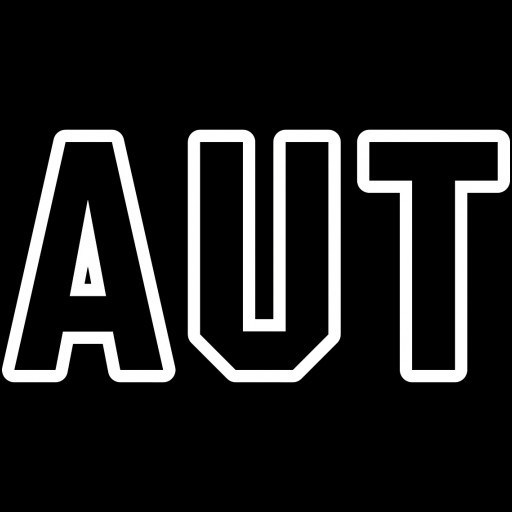Photos of university / #autuni
The Master of Computer and Information Sciences is for those looking to advance their undergraduate qualification, improve their career opportunities, or explore a specialist area of interest. You develop skills and knowledge that can be applied in practice, in industry and in academic research, and complete a significant research project in an area of your interest. You will also have the capability, credibility and judgement to manage and lead teams of information and communication technology professionals. Research is at the heart of this programme. Research topics range from interdisciplinary research to specialised topics within a number of research areas, including data mining, knowledge engineering, information systems, robotics, bioinformatics, health informatics, mobile applications, radio frequency identification (RFID), artificial intelligence, information security, computational astronomy, geocomputation or networking. Many of our students work closely with one of our research institutes or laboratories for their research project. This gives them access to specialist tools and facilities, and the opportunity to work alongside world-class research experts. Successful graduates will be well prepared for further studies at doctoral level.
- Duration: 1 1/2 years full-time / 3 years part-time
- Start date: 18 July
Structure
The Master of Computer and Information Sciences allows you to focus your studies on one of the discipline clusters below, or combine papers from different clusters.
Discipline clusters include:
- Artificial Intelligence and Knowledge Engineering – including bioinformatics, health informatics, neuroinformatics, data mining and knowledge engineering, artificial intelligence, machine learning, nature-inspired computing and geocomputation
- Information Systems and Technology – including data warehousing and big data, IT strategy and policy, ICT issues in the SME sector, eSystems design and development, visual information processing, information visualisation, human computer interaction
- Software Systems Engineering – including usage centred design, software requirements engineering, software architecture, software development methods
You will take the core paper Research Methods, and will complete either a research project or thesis under the guidance of an experienced academic supervisor. Your project or thesis may involve the creation of a software artefact.
Suggested and current thesis topics
Papers
CORE PAPER
COMP811 Research Methods I (15 points)
AND ONE OF THE FOLLOWING OPTIONS:
OPTION ONE
Elective Papers (45 points)
COMP989 Thesis (120 points)
OPTION TWO
Elective Papers (75 points)
COMP988 Thesis (90 points)
OPTION THREE
Elective Papers (105 points)
COMP971 Research Project (60 points)
THESIS
Enrolment in a thesis is subject to achieving at least a B- average in course work papers including a pass in Research Methods I and approval of research proposal.
ELECTIVE PAPERS
Enrolment in papers is subject to meeting all requirements and availability of papers.
COMP800 Neuroinformatics (15 points)
COMP801 3D Technologies: Displays to Printing (15 points)
COMP805 Health Informatics and the Health Sector (15 points)
COMP806 Software Architecture (15 points)
COMP809 Data Mining and Machine Learning (15 points)
COMP810 Data Warehousing and Big Data (15 points)
COMP812 Next Generation Networking (15 points)
COMP813 Artificial Intelligence (15 points)
COMP814 Natural Language Processing (15 points)
COMP815 Nature Inspired Computing (15 points)*
COMP816 Autoidentification (15 points)
COMP817 Geocomputation (15 points)*
COMP818 Intelligent Surveillance (15 points)
COMP819 Ubiquitous Computing (15 points)
COMP820 Video and Image Processing (15 points)
COMP821 Information Security (15 points)
COMP822 Human Computer Interaction (15 points)
COMP823 Readings (30 points)*
COMP824 Special Topic A (15 points)*
COMP825 Special Topic B (15 points)*
COMP826 Mobile System Development (15 points)
COMP835 Server System Development (15 points)
COMP837 ICT Issues in the SME Sector (15 points)
INFS800 Service Relationship Management (15 points)*
INFS803 Cloud Computing (15 points)
INFS804 eSystems Design and Development (15 points)
INFS809 Software Development Methods (15 points)
INFS810 Software Requirements Engineering (15 points)
INFS811 Usage Centred Design (15 points)
INFS812 Bioinformatics (15 points)
INFS813 Information Technology Strategy and Policy (15 points)
PHIL800 Philosophy of Computing Technology (15 points)
*Enrolment subject to approval by the Programme Leader
Entry requirements
In order to be admitted to the Master of Computer and Information Sciences an applicant must have completed the Bachelor of Computer and Information Sciences or equivalent with a B grade average or higher in the papers at level 7 or above. Guidelines to entry
Study abroad fees at AUT University: what you'll pay
2016 fees per semester in NZ dollars
- Tuition fee for Study Abroad: NZ$12,500 per semester
- Enrolment fee: NZ$150
- Learner services levy: NZ$320.08 per 60 points
- Placement fee (internship option only): NZ$800
- AUT Insurance Premium: NZ$294.50 per semester
Other compulsory fees (in addition to tuition fees)
- 2016 Compulsory Student Services Fee - $573.30 for 120 points or $4.77 per academic point (GST incl)
- 2016 Building Levy- $66.85 for 120 points or $0.56 per academic point (GST incl)

